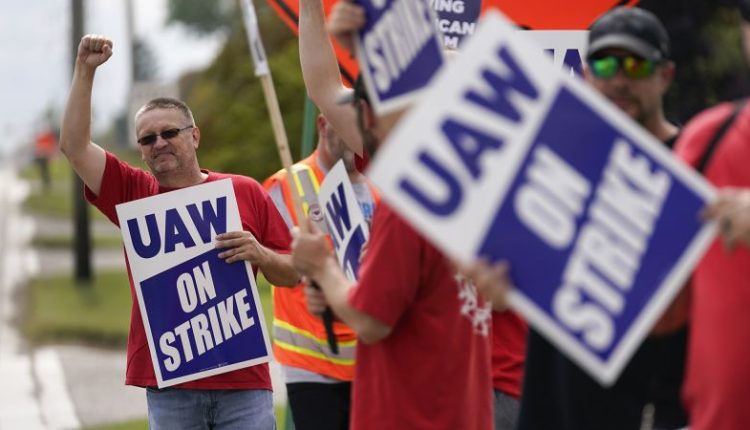The United Auto Workers (UAW) says its members have voted to reject a tentative agreement with Mack Trucks and will go on strike Monday.
The union said 73% of its workers had voted against the proposed deal, which was struck a week ago.
“I’m inspired to see UAW members at Mack holding out for a better deal, and ready to stand up and walk off the job to win it,” UAW President Shawn Fain said in a statement issued Sunday on X, the social media platform formerly known as Twitter.
Stephen Roy, president of Mack Trucks, was quoted by Reuters as saying he was “surprised and disappointed” that the union had chosen to strike.
“We clearly demonstrated our commitment to good faith bargaining by arriving at a tentative agreement that was endorsed by both the International UAW and the UAW Mack Truck Council,” he reportedly said in a statement.
CNN has reached out to Mack Trucks for comment.
News of the work stoppage at the heavy-duty truck maker comes as the union continues to wage strikes against three major car manufacturers.
Mack Trucks is one of the major US makers of heavy duty and medium duty trucks, with deliveries of 27,000 in 2022 and 16,000 for the first half of 2023. It is owned by Sweden’s Volvo Group, separately from the Volvo car brand, which is owned by China’s Geely.
The union’s stated bargaining goals at Mack mirror many of its demands in talks with the Big Three automakers — General Motors, Ford and Stellantis, which makes cars under the Jeep, Ram, Dodge and Chrysler brands — including improved wages and health care and pension benefits.
It is the first time in the union’s history that it has struck all three unionized automakers at the same time.
Fain told members on Friday that the three-week long strike had already prompted the automakers to meet some key union demands, even if there was not yet an agreement.
He said the progress in negotiations allowed the union to forgo plans to expand the strike to other facilities. More than 25,000 union members at five assembly plants and 38 parts distribution centers nationwide are now on strike.
President Joe Biden became the first sitting president to visit a picket line when he showed up last month at a striking GM facility to voice support for strikers.
It has become more common in recent years for rank-and-file union members to vote down tentative labor agreements reached by their union leadership.
The proposed deal between Mack and UAW was reached last week just minutes before the union’s contract had been due to expire on October 1.
In July, 57% of FedEx pilots voted down a proposed contract reached in May, which would have provided for a 30% pay increase, as well as a 30% improvement in pension benefits.
But because those pilots and other airline employees work under a different labor law, they were not allowed to immediately go on strike the way workers at Mack Trucks and most other private businesses can once their labor contracts expire.
Two years ago, UAW members at John Deere voted “no” on a tentative contract negotiated by their union leadership. They subsequently voted down another tentative agreement and decided to stay on strike, before eventually accepting a third tentative agreement and returning to work after a five-week-long work stoppage.
Strikes have become far more common this year. Unions are taking advantage of a strong US labor market to flex their muscles and demand better pay, benefits and work conditions for their members.
The number of strikes with 100 or more strikers that have lasted a week or more has soared to 56 in the first nine months of this year, according to a database of labor actions kept by the Cornell University School of Industrial and Labor Relations.
That figure, which is 65% higher from the same period last year, means there has been more than one such strike a week.
And it doesn’t even include significant shorter actions, such as the three-day strike staged last week by 75,000 health care workers at Kaiser Permanente.
The unions involved in that strike had previously intended to return to work after three days, but they have threatened an even longer strike in November if their demands for better pay and improved staffing are not meant.
Read the full article here

